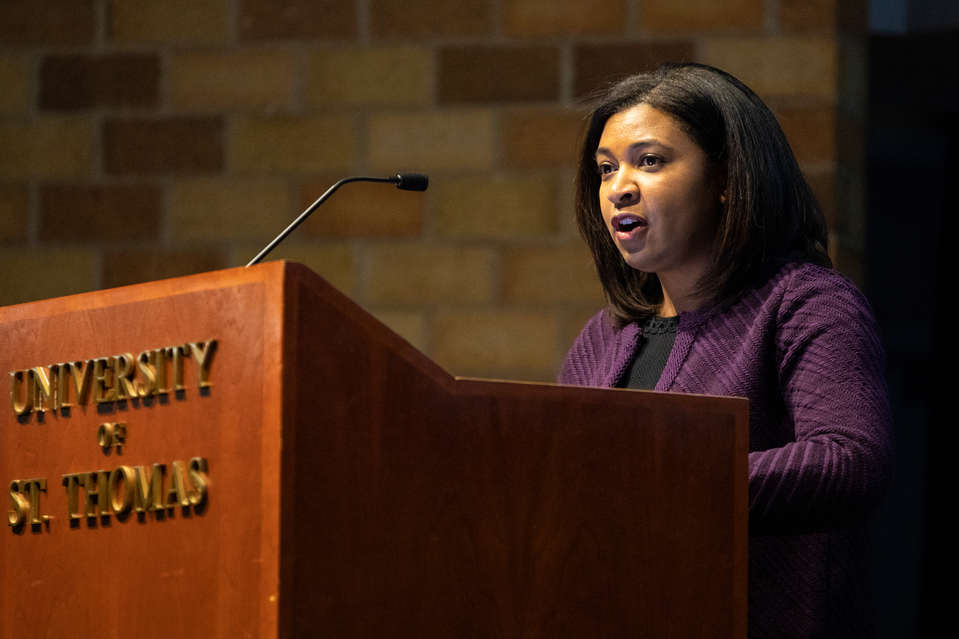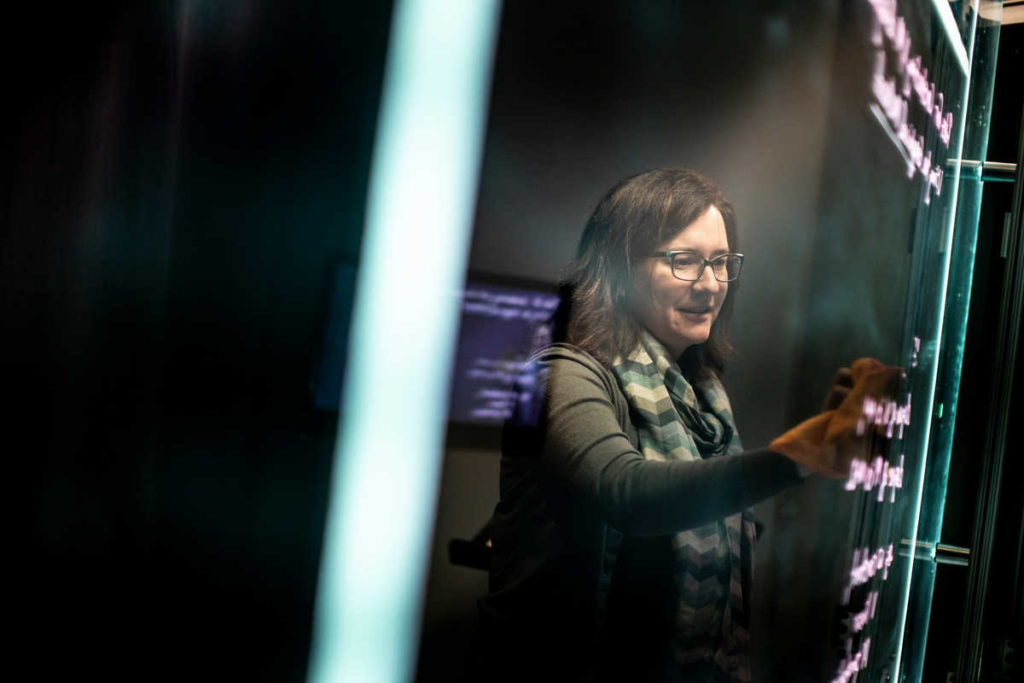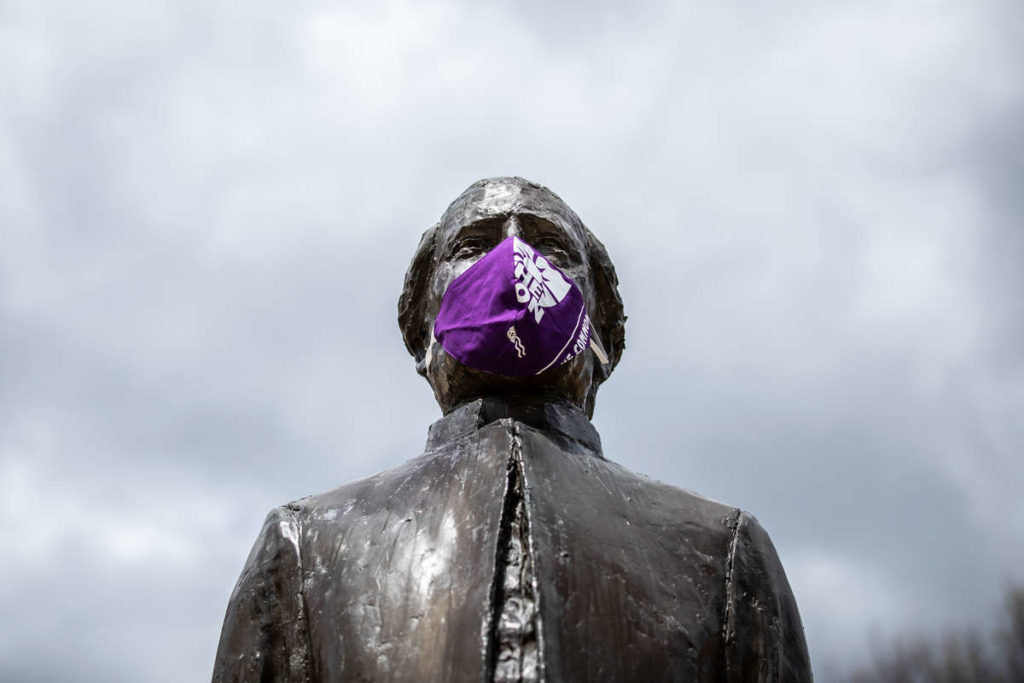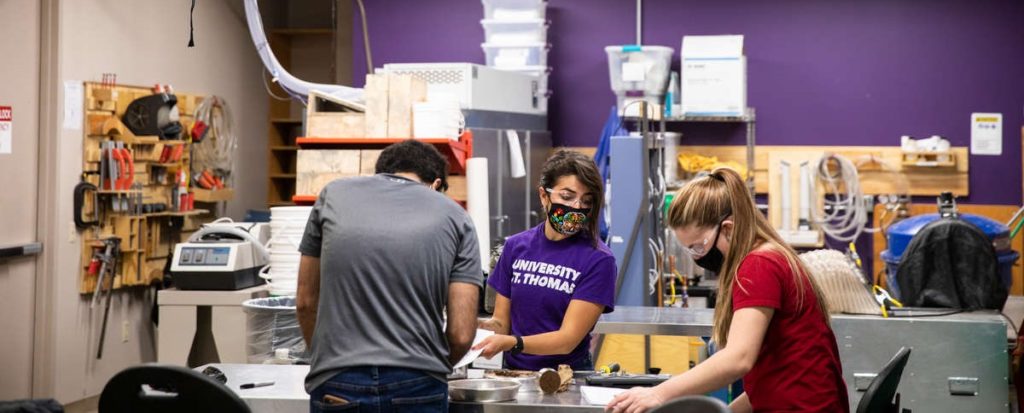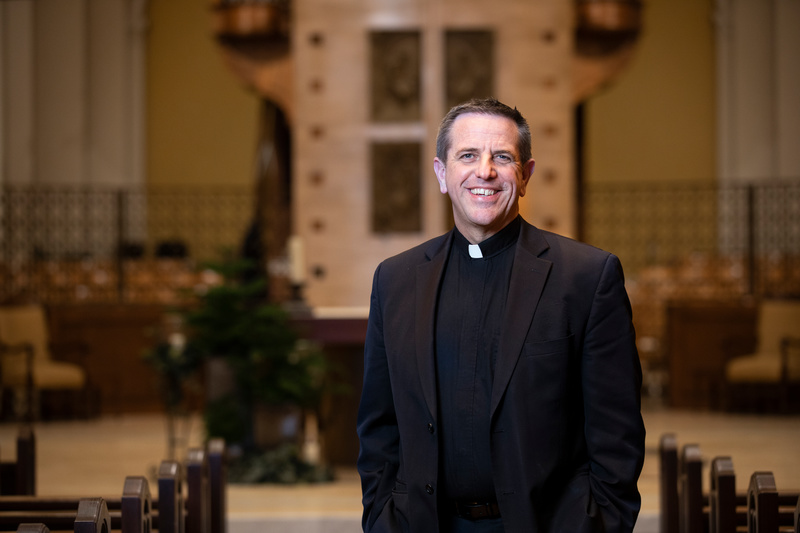For students majoring in teacher education, the COVID-19 pandemic has challenged them to embrace new opportunities when it comes to working with their cooperating teachers on distance learning lessons for their K-12 students. It’s also been an uncertain time for the student teachers when it comes to their future. School of Education Dean Kathlene Holmes Campbell has been working tirelessly over the past six weeks advocating for her students on everything from the number of “face-to-face" weeks of student teaching required to the way teacher performance assessments are conducted.
On April 8, Campbell testified at a remote hearing for the Minnesota House of Representatives Education Policy Committee asking them to allow student teachers, who are currently not able to take the required Minnesota Teacher Licensure Examination because testing sites are closed, a one-year conditional license without taking the exam first. (You can see her testimony here from the 31:11 to 31:58 mark.) On Wednesday afternoon, she is testifying at the Senate E-12 Finance and Policy Committee meeting on the same topic.
“It’s important that we are advocating for our students,” Campbell said. “I worry that at times the people who are the most vulnerable don’t always have a voice. That's why it’s crucial to make sure that I amplified their voices and their needs. People need to understand what the implications are for these students.”
Campbell talked to the Newsroom about the licensing change she’s advocating for, what the implications might be without the change and what she’s hearing from her student teachers.
Would you explain in more detail why you testified (via Zoom) in front of the Minnesota House of Representatives Education Policy Committee last week and are testifying at the Senate E-12 Finance and Policy Committee this week?
In education, there are rules that are written into the Minnesota administrative rules and also the administrative statute. If it’s written into rules, then the Minnesota Professional Educator Licensing and Standards Board (PELSB) is able to make adjustments to it. If it’s in statute, they don’t have the authority and it then moves to the Legislature. For most of teacher prep, PELSB can address it because they are the board that oversees the rules. But only the Legislature could change the licensing requirement for teachers.
My testimony advocated for the Legislature to give PELSB the authority to issue a probationary one-time Tier 3 license. This would be the first time since I joined the education profession that individuals could become teachers without taking a teacher licensure exam first. The probationary Tier 3 license grants new teachers an extension of a calendar year to take and pass the licensure examination because right now all the testing sites are closed, and they don’t have the option to take the test even if they could do it at home.
What would the teacher supply look like next fall if the licensing change is denied?
At St. Thomas we have 111 student teachers. If the Legislature doesn’t alter the licensure requirement, then potentially over 100 individuals who graduated from our university may not qualify to teach in public schools. Currently, it is unclear when the testing sites will be back open.
I think we potentially could harm a generation of new teachers. This pandemic has shown how important educators are to the community. I’ve personally heard from numerous individuals, who have said, ‘I never knew how hard it was to teach until I had to teach my own children.’ Teachers are often overlooked in our society, but we really are there for kids and the community. To say that you’re not going to help the next generation of teachers coming in would be a travesty.
What unique skills are these students developing because of the distance learning they’re now doing with their cooperating teachers?
Our students are learning what it means to be flexible. The ability to pivot and change everything that you’ve planned is a skill these new teachers will use for the rest of their careers. I’ve watched how our student teachers went from being nervous and panicked to applying what they learned throughout our program and implementing the skills differently. They have been able to share resources with their cooperating teachers.
When this group of students become teachers, they are going to plan lessons differently. I think they’re always going to have a ‘Plan B’ for situations that may occur. I believe they will ask themselves questions, such as, 'What would this lesson look like if I needed to pivot to an online platform? How do I make sure I’m preparing children the moment they walk into my class to accomplish work in-person and virtually?' Teachers are going to plan very differently now.
There are some school systems across the country that have had one-to-one devices for all students and teachers and have been working with them. People who are forward-thinking are starting to say, ‘We obviously never wanted a global pandemic to occur, but this is why you have to be ahead of the curve.’
What are you hearing from your students?
I’ve sent email updates after every PELSB meeting to inform our students on the status of the waiver requests and explain its impact. I’m really blessed to have an amazing faculty and staff who are constantly checking on our students and sending them tips on how to navigate our current situation. Students have thanked us for advocating for them because they realize that’s not happening everywhere else.
You’ve received many testimonials from cooperating teachers that your students have been an immense help with the move to distance learning. How have you seen teacher education students rise to the occasion?
I’m proud of them. I’ve noticed our student teachers have shifted to thinking about the K-12 children in their class and how best to support them. They have shown how committed they are to this profession and our community.
Looking back, I don’t think we ever could have prepared students for this moment, but I really do feel like they’re going to be better teachers for it.
